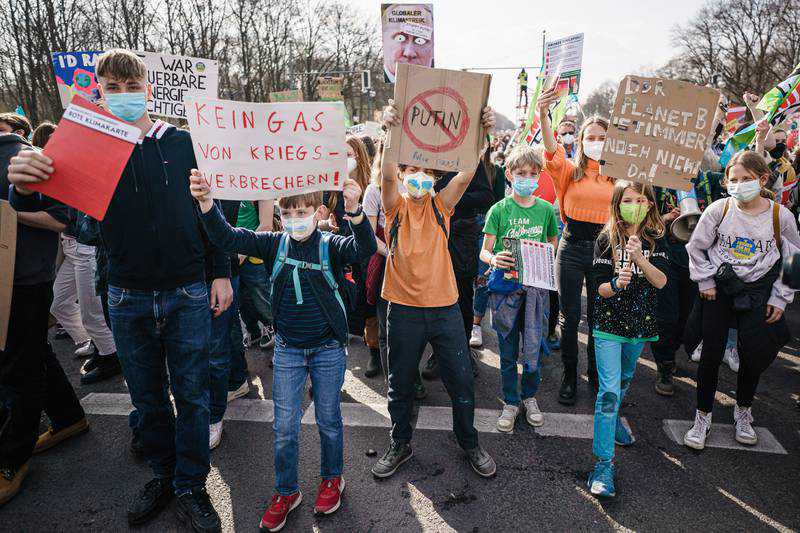How the Russia-Ukraine conflict has shaken German industry to the core

Germany’s industrial base, only emerging from the Covid-19 pandemic and unprecedented supply-chain challenges, is taking another beating with Russia’s war on Ukraine hitting its powerhouse car, chemical and precision-machinery manufacturers. As the conflict pushes energy costs to new heights and a wave of inflation builds, scores of companies including BMW, BASF and ThyssenKrupp have given warnings that their earnings will slip, while others declined even to offer a prediction. Economists have slashed growth forecasts.
“If the war drags on, it would seriously threaten a world order that has brought freedom and prosperity to many parts of the world over the past decades,” Herbert Diess, Volkswagen’s chief executive, said this month at the company’s annual earnings press conference. “Europe would suffer the most in such a scenario.” In Berlin, the government has acknowledged the depth of the predicament, but its options — both economic and political — are limited by decades of energy policy that have left Germany among Europe’s most heavily dependent nations on Russian gas and oil.
Even before the invasion, Germany’s energy-intensive industry base faced momentous shifts with the planned exit from nuclear and coal alongside Europe’s highest electricity costs. Economy Minister Robert Habeck has set up a task force to gather data from industry on gas and electricity use and prices, production plans, supply bottlenecks and reliance on Russian energy.
But the moves can’t provide the immediate relief companies are seeking and signs are building that the war could cause lasting economic pain to Germany’s export-driven manufacturers riding high for years on demand from China and efficient supply chains. Germany is in danger of stagflation, when high inflation persists alongside an economic slowdown, Finance Minister Christian Lindner warned.
A range of gauges have turned gloomy in a country that depends on its manufacturing sector to keep humming along. Goods production accounts for about 22 per cent of Germany’s economic activity, compared with 11 per cent in France. Kiel Institute cut its 2022 growth outlook for Germany by nearly half to 2.1 per cent as shock waves from the war offset resurging demand following the depth of the pandemic alongside inflation accelerating to 5.8 per cent, the highest level since the country’s 1990 reunification.
An index of German manufacturing sank further in March and a key business climate survey fell by a record. Germany’s coalition government reached a deal on Thursday for its second package to ease the burden of energy costs, bringing the total relief spending to about €30 billion ($33bn).
But there’s still no cohesive plan to head off a crisis that’s reverberating through so many layers of the economy, said one official, who spoke on condition of anonymity. According to a survey of 3,700 companies by business lobby DIHK, 78 per cent reported that the war was hurting their business, and more than half complained about rising prices or disrupted supply chains.
Russia supplies about two-thirds of Germany’s gas, half of its coal and roughly a third of its oil. The biggest worry for businesses in Germany is right now a possible shutdown of Russian energy supplies — either by President Vladimir Putin or the EU.
Speaking on Friday, Mr Habeck underscored Germany’s predicament. “Even if we become less dependent on Russian imports, it is too early for an energy embargo at this point in time,” Mr Habeck said. “The economic and social consequences would still be too serious.”
Tags :
Previous Story
- Lloyd's of London's bumper 2021 profits overshadowed by...
- Asian shares fall after Wall St gain as...
- Fuel price spike and Russia-Ukraine crisis risk airlines'...
- Africa faces grain shortage and sharp rise in...
- IMF set to lower 2022 global growth estimate...
- IMF approves $1.4bn in emergency funding to Ukraine
- Russia-Ukraine: Is internet on verge of break-up?
- Ukraine crisis could hit global food supplies, disrupt...